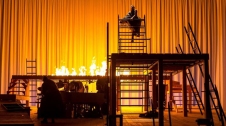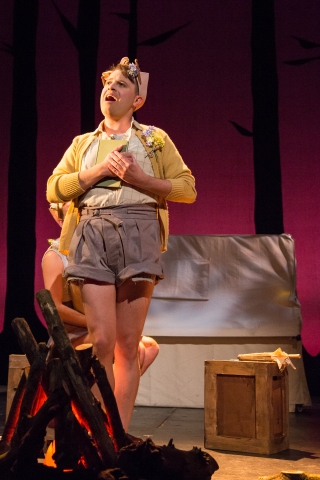29/05/17
I have to confess to having a bit of a blind spot for animation. I sometimes have to cajole myself into going along to see one, even though I invariably enjoy myself when I make the effort. I loved Inside Out, for instance – heck, I really liked Frozen, before it became so… over-exposed.
The Red Turtle is more than just another cartoon – it’s a game changer, quite unlike any animated film I’ve seen before. This canny co-production between Japan’s Studio Ghibli and Dutch animator Michael Dudok de Wit seems to exemplify the best traditions of east and west. The Japanese influences are there in the sumptuous forests and the watercolour-like depictions of the landscape – yet the graphic characters could have stepped straight out of the pages of a Herge cartoon. Almost completely wordless but blessed with a sumptuous soundtrack to make up for it, this is fabulous stuff – a powerful and affecting meditation on life, love and adversity.
A man finds himself a castaway on a remote desert island. He spends a lot of time looking for signs of life and when he fails to find another human there, he starts building rafts in an attempt to escape – but his encounters with a mysterious red turtle ensure that he repeatedly ends up right back where he started. As the story unfolds, the man begins to realise that the turtle isn’t what he first thought it was…
It would be criminal to give away more of the plot. Suffice to say that this beautiful allegory, which clocks in at a pacy 80 minutes, will thrill you, amaze you and, unless you’re the most stoic person on the planet, have you in tears at its heartfelt conclusion. For this is a parable about life and there will be elements here that every viewer will identify with. Just in case I’m making this sound a bit too po-faced, let me tell you that there are a family of crabs living on the island, whose playful antics deliver regular doses of comic relief.
The Red Turtle may well be the perfect antidote for people who don’t much care for animation. But those who love the format will have a field day too, because this is an absolute delight that deserves to reach the widest possible audience.
4.6 stars
Philip Caveney


























